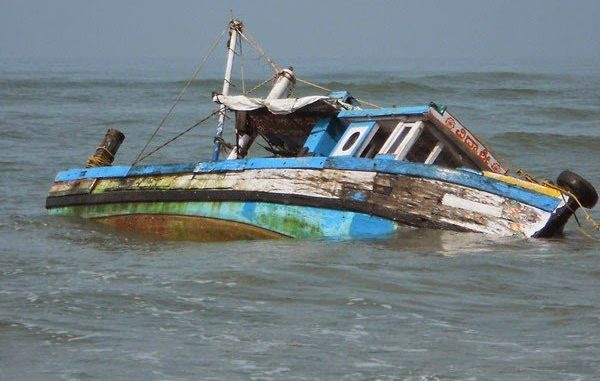
TOO many people are dying in needless boat accidents in Lagos State. Within four days in July, 19 people were confirmed dead in two separate crashes in Ikorodu and Ojo. This is troubling, especially considering the state government’s vigorous campaign for residents to embrace water transportation as part of measures to decongest the roads and create an effective inter-modal transportation system for the state. Governor Babajide Sanwo-Olu’s government must step up its game.
For commuters to see water transport as viable and safe, it must go beyond merely reacting to tragedies. Preventing accidents must take precedence. There must be increased regulatory supervision, more private participation, and development of the state intermodal transport potential.
The recent death of the 17 boat passengers at the Mazamaza end of Mile 2 Inland Waterway Channel, Ojo, was particularly tragic. It demonstrated a fatal lapse in enforcement of regulations. The Lagos State Commissioner for Information and Strategy, Gbenga Omotoso, said preliminary investigation revealed that the boat was unlicensed, broke the rule banning night travel and took off from an unapproved jetty. Even worse, not all passengers wore life jackets, a basic and mandatory safety and regulatory requirement.
This is a serious indictment on the regulatory agencies, including the Lagos State Waterways Agency, which should have shut down the operations of the ferry. Clearly, monitoring of operators is weak. The state government must bring everyone indicted in the case to justice, including government officials whose negligence and irresponsibility plunged families into needless sorrow.
A major challenge confronting Lagos is its chaotic transport system because more than 90 per cent of transportation is on the road. Its ambitions of diversifying by using water, light rail, tram, and helicopter shuttle services have not materialised. As of October 2021, only 3.2 per cent of Lagosians used ferry services. Meanwhile, with a population of about 20 million and at least eight million commuters and rising, it is estimated that of the five million vehicles in the state, more than 1.6 million of them ply the 9,204 roads in the state daily.
This is a recipe for chaos. Achieving the inter-modal transport network is not rocket science; what is missing are the political will, investment, and consistency in seeing through planned projects. Lagos has all the advantages and needs to develop Africa’s most advanced water transportation system.
With only 1,171 square kilometres of Nigeria’s 923,768 sq km landmass, 40 per cent of that being water, 15 of its 20 local government areas can also be accessed through water. Moreover, it has a huge population and hosts over 60 per cent of the country’s commerce. All this makes it both imperative and beneficial for Lagos to devise an efficient multimodal transport system with water featuring significantly. Its efforts in this direction have been too little and too slow in implementation. It should channel adequate resources to build trust and safety in its waterways, which form a critical element of its size.
Hubei Province, China, obtained a $150 million loan from the World Bank to improve the reliability of its inland waterway transport. Billed to be completed in June 2023, the bank said it “will increase inland waterway transport along the Han River and promote a shift from roads to waterways, which reduces carbon emissions from transport.” Lagos, as the seventh fastest growing city in Africa with the highest Internally Generated Revenue in Nigeria, needs to mobilise such support.
There is, however, the need to deepen private sector investment and participation to drive capacity. The Lagos State Ferry Services, owned and managed by the state, has a total of 20 boats in its fleet, 15 of them purchased in the last three years by the Sanwo-Olu administration. While the drive is commendable, it is not enough for a megacity like Lagos. The government needs to incentivise private investors with guarantees of returns. The New York City Ferry is managed by Hornblower Cruises, a private company. The ferry sector in Canada, with public and private players operating on 180 routes, forms an integral part of the country’s economic and social development. The ideal is to create a robust investment climate, an effective regulatory and safety environment for massive private sector investment.
Lagos State must enforce international best practices across jetties and terminals to safeguard lives. There must be regular monitoring and report of the activities of operators. Periodic training and sensitisation will go a long way in entrenching a culture of safety in the sector. It is equally important that government pays attention to the dredging of waterways and removal of wreckages along the coastline that could endanger boat services.
Most casualties of boat accidents are usually said not to have worn life jackets. It must become a serious offence for anyone not to use life jackets on the waterways. Both the boat operator and the passenger should face heavy penalties. Government must deploy officials to enforce this rule as the standards of life jackets should never be compromised.
Boat operators who risk the lives of passengers by overloading their boats, going on unauthorised night travels or deliberately putting commuters’ lives in danger should face criminal prosecution and withdrawal of their operator’s licences.
The decision of a Lagos State High Court sitting in Eti-Osa to sentence a boat captain, Happiness Elebiju, to life imprisonment for causing the death of 13 passengers, including two children, is commendable. Elebiju had on July 29, 2020 charged N1,200 fare from Kirikiri Waterside to Badagry. However, midway into the journey, he demanded an extra N300. When the passengers rejected his demand, he callously switched off the boat engine. The wave made by a passing ship thereafter caused the boat to drift towards a stationary barge, where it capsized. He swam to safety, while 13 people perished. Water transport authorities need to get rid of such evil characters.
Going forward, the government must strictly monitor operators and the waterways, enforce regulations, and constantly evaluate operators and their personnel to prevent any more accidents.





